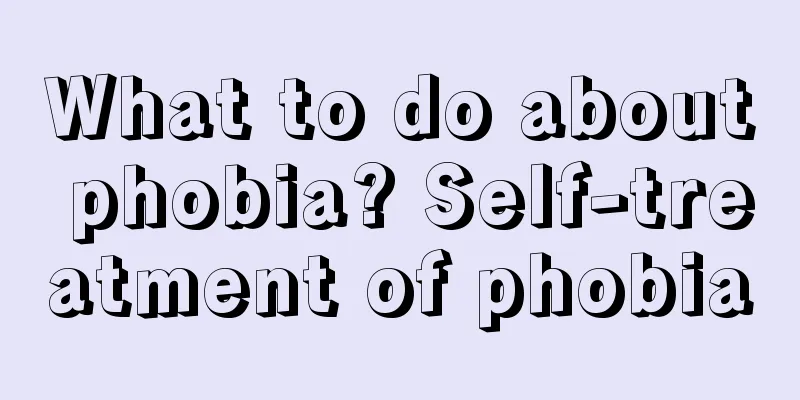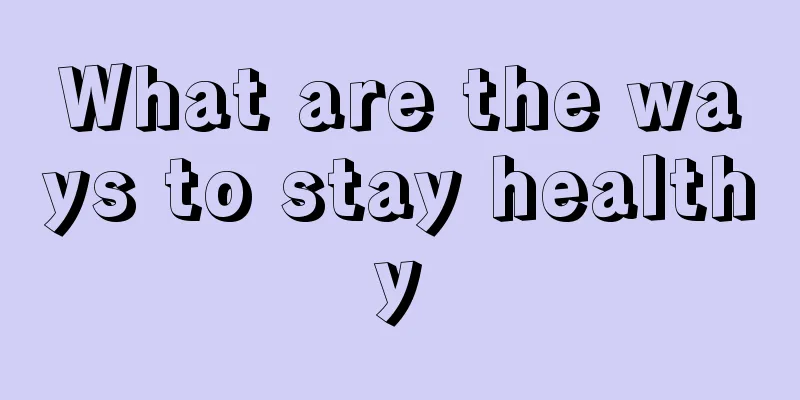What to do about phobia? Self-treatment of phobia

|
In recent years, as people's life and work pressures gradually increase, many young people have developed psychological diseases such as anxiety and phobia. Clinically, people are more concerned about whether phobia can be completely cured, because it seriously affects people's daily lives. In fact, if you suffer from a phobia, you not only need to rely on the hospital, but more importantly, you need to adjust your own psychology, that is, self-treatment of phobia. So what is the self-treatment method for phobia? Specifically, it can be divided into the following four steps. Step 1: Reconfirm: The most important first step is to learn to “recognize” the thoughts and actions of phobia. Everyday awareness is almost automatic and superficial. "Heartfelt awareness" is deeper, more detailed, and can only be achieved through focused effort. The goal is to control your response to your fear symptoms, not to control the obsessive thoughts or impulses. You may not want to take this step at all, but you must make an effort to be fully aware so that you can understand that your current distress comes from compulsive thoughts or behaviors. Step 2: Re-attribution: Say to yourself: "This is not me, it's the phobia that's causing it! This is what we call "shifting gears": doing something else! If you try to get rid of obsessive thinking, it will only add to your stress and worries, and stress will make the phobia worse. Step 3: Shift your attention: What you need to do in this step is: you must shift gears yourself! You use hard work and concentration to do a very natural and easy job for your brain. When you have obsessive thoughts, you first "reconfirm" that they are obsessive thoughts or impulses, and "reattribute" them to your illness - phobia, and then "divert your attention" to do other things. Remember not to fall into habitual thinking. You must tell yourself: "My phobia has come back again. I must do something else." You can decide "not" to react to compulsive thinking. You must be your own master, not a slave to your phobia! Diversion is to divert your attention away from the fear symptoms, even for just a few minutes. Start by choosing some specific behaviors to replace compulsive hand washing or checking. Any fun, constructive action will do. It is best to engage in your own hobbies, such as: walking, exercising, listening to music, reading, playing computer, playing basketball, etc. |
<<: How to treat deep-sea phobia, what are the practical methods
>>: What is social phobia? Do you know?
Recommend
How to whiten naturally dark skin?
Some people are born with darker skin, so if they...
Can gastritis cause fever? What are the disadvantages?
Gastritis is a digestive system disease that has ...
What are the benefits of green fruit
There are many kinds of fruits in people's li...
What to eat to reduce swelling after plastic surgery
Women often undergo plastic surgery because they ...
Causes of coccyx protrusion
Humans have gradually evolved from the most primi...
Is bladder cancer hereditary?
Whether bladder cancer is hereditary is a questio...
There were bloodstains on his body
People sometimes inadvertently find bloodstains o...
What causes lymphoma
The lymphatic system is very important to the hum...
What are the poisonous plants
Plants are an important part of nature and play i...
What is a spa
Everyone must have heard of spa, and many people ...
What are the causes of lung cancer in women
The number of people suffering from lung cancer i...
What are the hazards of nuclear leakage to human body
Nuclear energy is a very important energy source ...
Can Chinese medicine powder be boiled in water?
Grinding Chinese medicine into powder through pro...
What to do and how to care for submucosal nasopharyngeal carcinoma
Submucosal nasopharyngeal carcinoma is a type of ...
How to diagnose laryngeal cancer through laboratory tests
In recent years, laryngeal cancer has become one ...









